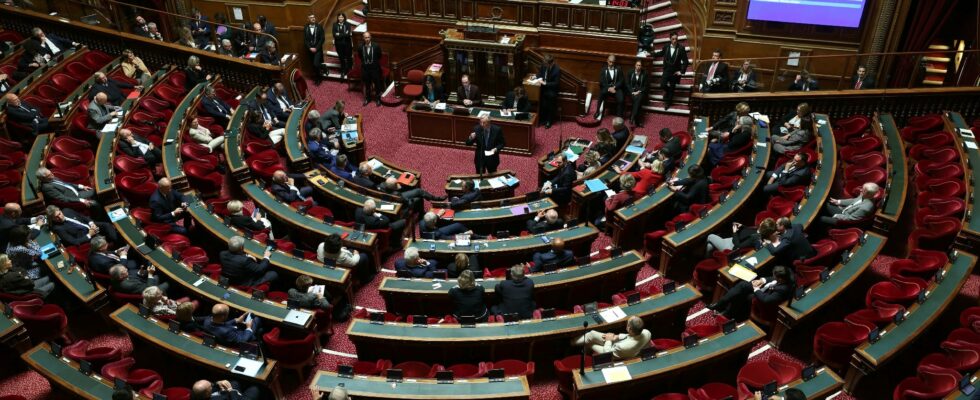“It will be a long CMP. Perhaps into the night,” warned an LR parliamentarian: seven deputies and seven senators are responsible this Wednesday, November 27, for finding a compromise version on the draft Social Security budget for 2025 , during a joint joint commission (CMP). The government coalition has a narrow majority (eight votes to six), but the text, largely adopted Tuesday evening by the Senate, is full of very sensitive measures on reductions in employer contributions, the increase in pensions, reimbursement of medicines such as taxes on sodas or tobacco. Review.
Employer contributions
Anxious to involve companies in the collective effort to redress accounts, the government is tackling a flammable issue, that of reductions in employer contributions. Considering that these have soared in recent years, approaching 80 billion euros, he proposed an effort of four billion euros on employers, reduced to three billion by the Senate.
But the Macronist camp, like the employers, refuses this measure, likely to derail the chances of a global agreement in CMP. Michel Barnier said he was ready to make concessions, and Budget Minister Laurent Saint-Martin spoke of a possible “compromise” around an effort of 1.5 billion for businesses. But the suspense remains.
The project also proposes to subject apprentices to two social contributions (CSG and CRDS), and to increase the taxation of “free shares” distributed by employers to their employees or managers.
Retirements
The compromise found between the Republicans and the government to index pensions to half of inflation from January 1 – with a supplement on July 1 for pensions below the minimum wage – appears in the text voted by the Senate. And Michel Barnier defended it on TF1 on Tuesday. But the impact of the measure on the purchasing power of retirees is one of the red lines set by Marine Le Pen, who threatens the government with censorship and considers this compromise “inadmissible”. To the point of changing the government’s position?
Another hot point on the retirements of territorial agents, the spread of three to four years of the increase in contributions to the National Retirement Fund for Local Authority Agents (CNRACL), a government concession adopted in the Senate.
Working time
Hotly debated in the Senate, a measure aimed at making workers work without pay for seven more hours per year to finance dependency risks disappearing from the final text. An agreement was reached between LR deputies and senators to waive this “solidarity contribution”. And if the centrists in the Senate denounced this agreement taken without consultation, the balance of power in the CMP is such that the removal of the measure seems inevitable.
Soda, games and tobacco
Both the National Assembly and the Senate had extensively debated “behavioral taxation” measures, particularly around a strengthening of the “soda tax” (intended to limit the quantity of sugars in this type of drink). The senators further increased this tax – 4 cents per liter for the least sweet drinks, and up to 35 cents per liter for the sweetest -, also combining it with an increase in a tax on “sweetened drinks “, voted against the advice of the government.
The text under discussion in the CMP also includes an acceleration in the increase in the price of a pack of cigarettes, which will thus rise to 12.70 euros on average next year, or 40 cents more than planned in the national plan to combat smoking. And a tax on “pouches”, these nicotine sachets in gum or beads to place in the mouth.
An increase in taxes on lotteries, casinos and other sports betting also appears in the text, with the agreement of the government.
Defunds and “rabbit” tax
Even if the system does not appear in the black and white text of the law, the government’s intention to reduce reimbursements by Social Security for medical consultations and medications by 5% – which should result in an increase in mutual insurance – continues to make people talk, particularly to the RN, which makes it an argument for censorship.
Another very concrete debate for policyholders: the “rabbit tax” introduced in the Senate, which proposes to charge patients who do not honor their medical appointments.
